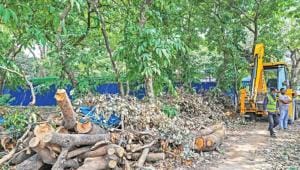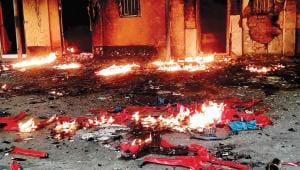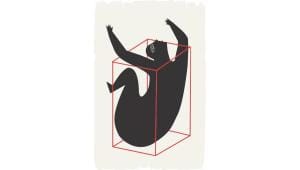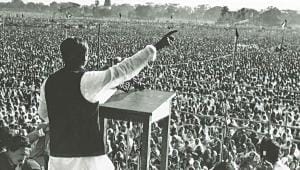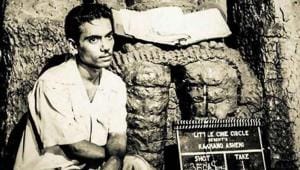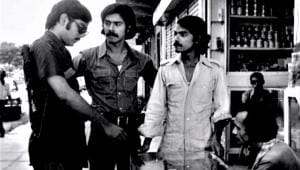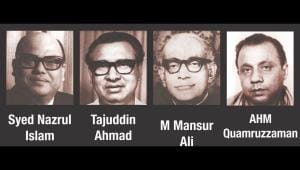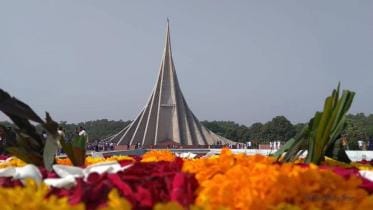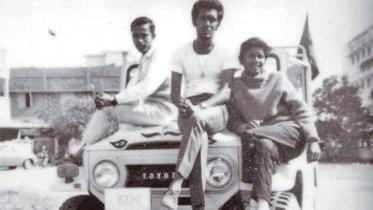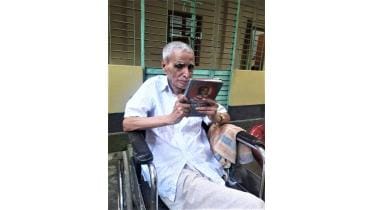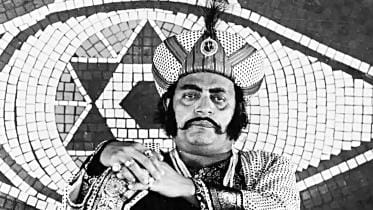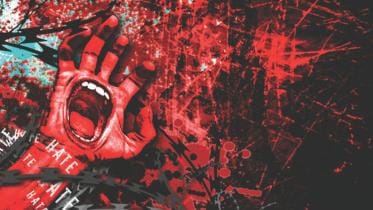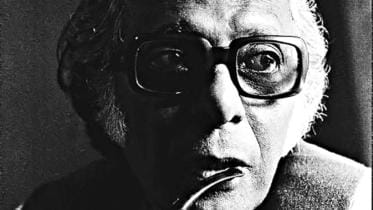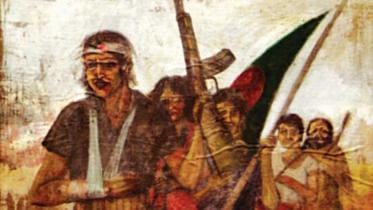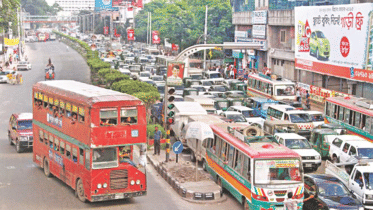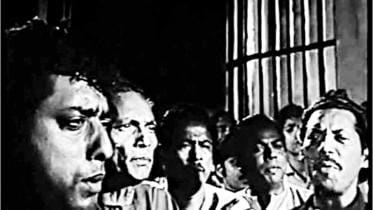We must protect the trees at Suhrawardy Udyan for our own wellbeing
Conscious citizens were appalled after seeing the photos of chopped branches and logs in Suhrawardy Udyan after several mature trees of the park were cut down as part of an ongoing government undertaking—the Independence Monument Construction (Phase III) Project.
10 May 2021, 18:00 PM
Power to the profundity and imagination: Timeless films of Satyajit Ray
From the 1920s to the early 1950s, several directors working within Hollywood—as well as filmmakers in former Soviet Union, France, Italy, Germany, and Japan—considered cinema not as a mere tool of entertainment but as a medium for creative expression.
2 May 2021, 18:00 PM
Are we forgetting the ideals of our Bengali cultural identity?
For two successive years now, thousands of inhabitants of Dhaka dressed in traditional Bengali outfits were not seen swarming joyfully in Ramna Park and Dhaka University areas from the early morning on Pahela Baishakh.
24 April 2021, 18:00 PM
Did our independence decolonise our consciousness?
At this time of celebrating the 50th anniversary of our independence, it is also necessary to think deeply about our success in eliminating the social and political injustices that existed in our country during the pre-independence period.
2 April 2021, 18:00 PM
Bangabandhu’s rapier-like words reflected his unswerving resolution
In the very first general elections of Pakistan held in December 1970, the Awami League won an absolute majority in the National Assembly. But for the Pakistani military junta as well as the Pakistan People’s Party head Zulfiqar Ali Bhutto, the desire to retain control of the central government took precedence over the need to abide by democratic norms.
6 March 2021, 18:00 PM
Dreams devoured: The tragic disappearance of Zahir Raihan
Eminent novelist and filmmaker Zahir Raihan left for Kolkata after the Pakistani military crackdown in Dhaka on March 25, 1971.
29 January 2021, 18:00 PM
The misdeed of masquerading as a Muktijoddha
Bangladesh emerged as an independent nation through the unconditional surrender of the Pakistani army to the joint command of Bangladesh and Indian forces on December 16, 1971.
22 December 2020, 18:00 PM
Looking at the November coups through a neutral lens
Newspaper articles published on the military coups held in Dhaka in November 1975 are often coloured by the authors’ political standpoints and ideologies.
29 November 2020, 18:00 PM
How respectful are we of the ideals of Liberation War?
In 1971, the Pakistani military junta wanted to prevent Bengalis of then East Pakistan from pursuing their just demands by using brute force.
5 November 2020, 18:00 PM
Destroyed, but not defeated
It is said that in times of peace, sons bury their fathers, but in war, it is the fathers who bury their sons. On August 29, 1971, the Pakistani army caught Bodiul Alam (Bodi), Shafi Imam (Rumi), Abdul Halim Chowdhury (Jewel) and Magfar Ahmed Chowdhury (Azad) in Dhaka city. They were the members of a guerrilla unit of Mukti Bahini.
28 August 2020, 18:00 PM
Courage, thy name is Devdas
Recently, Mujibor Rahman Devdas passed away. Although the state honoured him with the Ekushey Padak, he had to lead his life in isolation and remained totally unknown to many people.
1 June 2020, 18:00 PM
Are we praising the right films?
When did we last watch a formally-innovative Bangladeshi film that made a conscious attempt to confront and denounce a long-standing social problem of our country? And when did we last witness people’s huge enthusiasm to watch a film that did away with alluring ingredients and attempted to raise people’s sociopolitical consciousness?
15 May 2020, 18:00 PM
Mindlessness as Food for the Mind?
At a time when it is essential to maintain social distancing in order to remain safe amidst the Covid-19 outbreak, we see many people displaying a reckless disregard for the need to stay indoors.
23 April 2020, 18:00 PM
Remembering Mrinal Sen, whose films connote courage and consciousness
Only a handful of Bengali filmmakers are revered in the realm of world cinema whose names are mentioned with legendary directors such as Jean-Luc Godard, Francois Truffaut, Ingmar Bergman, Luis Bunuel, Akira Kurosawa, Yasujiro Ozu, Ousmane Sembene, Federico Fellini, Michelangelo Antonioni, Glauber Rocha and others.
2 January 2019, 18:00 PM
They gave their today, for our tomorrow
Today, on another August 29, how many people remember that dark night when these patriotic and fearless young men had been captured? Do the members of our new generation have any interest in reading about the young Bengali guerrillas who were murdered by the Pakistani army in 1971?
28 August 2017, 18:00 PM
Save our heroes from oblivion
My current students' unfamiliarity with Major Ziauddin only shows that the unwillingness of our young people to know about the heroes of 1971 persists.
7 August 2017, 18:00 PM
Of depravity and mimicry
Recently a few students of one of the leading public universities of the country became so unruly as to assault a police sergeant when he tried to perform his duty by not letting the university bus pass through the wrong side.
23 July 2017, 18:00 PM
Cinema that reflects life
“For the truly serious, socially conscious filmmaker, there can be no prolonged withdrawal into fantasy. He must face the challenge of contemporary reality, examine the facts, probe them, sift them and select from them the material to be transformed into the stuff of cinema.”
29 June 2017, 18:00 PM

